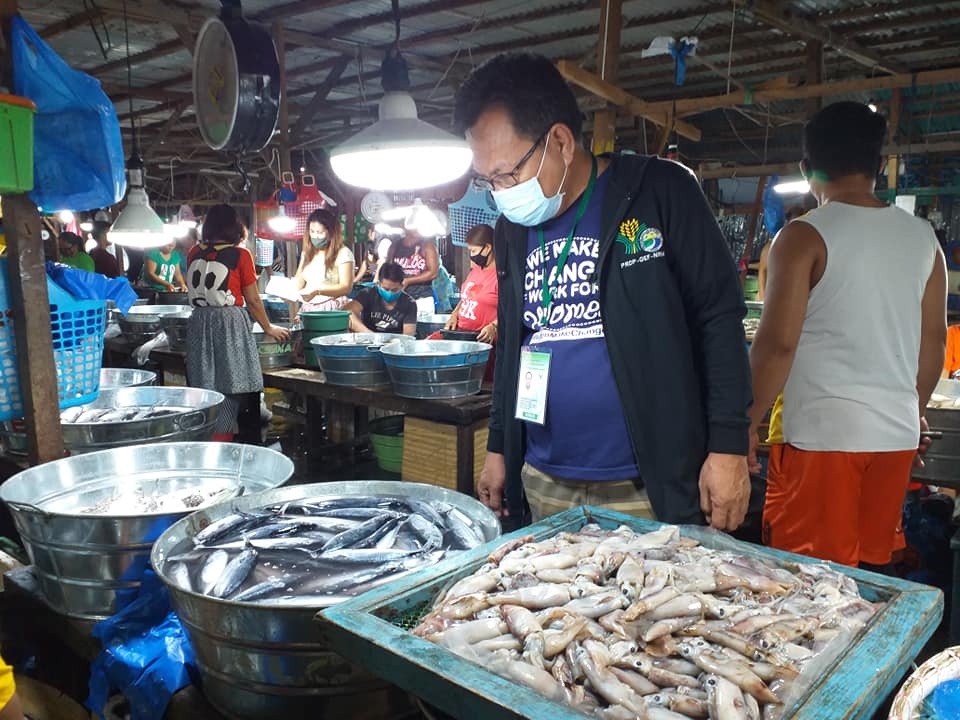
While there is an abundance of fish, only very few buyers have been visiting the Pasil Fish Market in Cebu City since the implementation of the enhanced community quarantine. | Photo courtesy of BFAr-7
CEBU CITY—With the implementation of the enhanced community quarantine (ECQ) in Cebu and other areas in Central Visayas, the Bureau of Fisheries and Aquatic Resources (BFAR-7) called on the local government officials to support fishermen and fish traders who are now experiencing low sales.
In a press release posted on the agency’s Facebook page, BFAR-7 regional director Dr. Allan Poquita said the fishery industry has been crippled by the pandemic following the imposition of travel and movement restrictions.
“Fewer people are allowed to go out from their homes to buy basic necessities and commodities. Some traders could hardly pass through borders because of the enhanced community quarantine. We fully support the measures imposed by the local government units but we are also asking their help to address the plight of our fishery stakeholders,” Poquita said.
The BFAR regional office decided to seek the help of the LGUs after it heard the sentiments of several fishermen and fish vendors.
Read: Pasil fish vendors complain of drop in sales with ECQ implementation
During its regular price monitoring activities, BFAR personnel learned that many fish vendors have been experiencing slow sales. The regional office has stepped up its price monitoring efforts to avoid price manipulation in these times of crisis.
“There may be sufficient fish supply but only a few dealers or customers get to buy their products,” the BFAR-7 statement said. “Since fishes are perishable, some vendors are forced to sell their products at low prices just so they can dispose them at good quality.”
Also, some buyers from other provinces or towns could not travel or get through borders because of the restricted movement and banned sea trips.
Poquita appealed to the concerned LGU officials to allow fish dealers and traders to access to fish landing centers in the region. The two known fish landing centers in Cebu province are in Barangay Pasil, Cebu City and in Danao City.
BFAR-7 had been issuing food pass to suppliers and truckers to grant them the privilege to get through checkpoints so that there will be unhampered movement of cargoes, fishery inputs, and among other food products.
Poquita proposed that LGUs, through their Municipal Agriculture Office, facilitate the transport of fish products from the landing centers to their fish markets to ensure the availability of fish in their area.
He suggested that local officials could also include the fish products available in their market among the goods given to households.
Setting up an accessible mini-fish market would also be a great move since it would help marginal fishermen sell their fish catch, Poquita added.
Based on the feedback from the BFAR-commissioned enumerators, the local marginal fishers are experiencing the same dilemma since fewer people are going out from their homes. Most of the households now consume the goods which they stored prior to the ECQ implementation.
Poquita urged the LGUs to initiate their own protocols or policies in such a way that it will safeguard the well-being of the people and, at the same time, support the livelihood of local fishers who provide food to the people’s table. / dcb